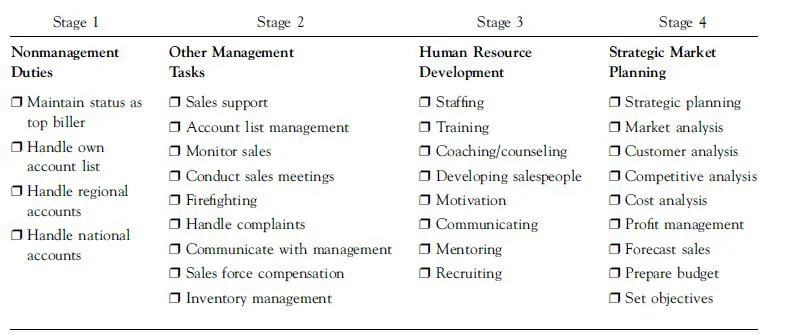
The Accidental Sales Manager
How to Take Control and Lead Your Sales Team to Record Profits
- English
- ePUB (mobile friendly)
- Available on iOS & Android
The Accidental Sales Manager
How to Take Control and Lead Your Sales Team to Record Profits
About this book
Key skills to make sales managers better developers of salespeople
Get out of the firefighting business and into the business of developing the people who develop your profits. Successful salespeople rightfully become sales managers because of superior sales records. Yet too often these sales stars get stuck doing their old sales job while also trying to juggle their manager role, and too often companies neglect to train their sales managers how to excel as managers. That's the "sales management trap, " and it's exactly what The Accidental Sales Manager addresses and solves.
Full of helpful steps you can apply immediately?whether you're training a sales manager, or are one yourself?this practical guide reveals step-by-step methods sales managers can use to both learn their jobs and lead their teams.
- Get tactics to stop burning time and exhausting yourself, while taking effective actions to use time better as a leader
- Discover how to integrate learning into leading and make sales meetings an active conversation on what works and what doesn't
- Author has a previous bestseller, The Accidental Salesperson
Don't get caught in the "sales management trap" or, if you're in it, get the tools you need to escape it. Get The Accidental Sales Manager and lead your team to do what you do best: make sales, drive profits, and get winning results.
Frequently asked questions
- Essential is ideal for learners and professionals who enjoy exploring a wide range of subjects. Access the Essential Library with 800,000+ trusted titles and best-sellers across business, personal growth, and the humanities. Includes unlimited reading time and Standard Read Aloud voice.
- Complete: Perfect for advanced learners and researchers needing full, unrestricted access. Unlock 1.4M+ books across hundreds of subjects, including academic and specialized titles. The Complete Plan also includes advanced features like Premium Read Aloud and Research Assistant.
Please note we cannot support devices running on iOS 13 and Android 7 or earlier. Learn more about using the app.
Information
CHAPTER 1
Gnawing Your Way Out of the Sales Management Trap

When you don’t see success in the field, you are very quick to jump in and get your hands dirty—to the point where you’re doing the lower level tasks that you’ve hired other folks to complete. You want to bypass the rep and call the customer yourself to find out where in the process the sale is. You’ve got a $2.5 million opportunity and it’s sitting there staring at you while your sales guy is telling you that it’s moving along. You want to call the customer and find out precisely, “Where is this project?” At Level 3, you’re really coaching your team to understand that this project is not moving. Unless you resurrect it, it has flat lined—and you might as well move on to something else because you’ve exhausted every bit of life that’s left in it.
This is such a fast game. Every day goes by so quickly. I am not spending enough time sitting in a quiet room to gather my thoughts about the big picture, asking myself what’s going on, and really working on strategy. A lot of the job is reactive. I need to delegate the minutiae and spend more time leading the strategy on how we are going to continue growing this. I can get a call from a territory manager about a pricing issue or field a customer complaint about a shipping issue or incomplete order. Bigger issue items to me are things like dissecting our in...
Table of contents
- Cover
- Table of Contents
- ABOUT THE AUTHOR
- INTRODUCTION
- CHAPTER 1: Gnawing Your Way Out of the Sales Management Trap
- CHAPTER 2: Fourteen Lessons You Won’t Have to Learn the Hard Way
- CHAPTER 3: Stage 3 Tasks
- CHAPTER 4: What’s Changed About Selling?
- CHAPTER 5: Running Great Sales Meetings Every Time
- CHAPTER 6: What Happens in Your Meeting in Vegas Stays in the Meeting Room
- INDEX
- End User License Agreement